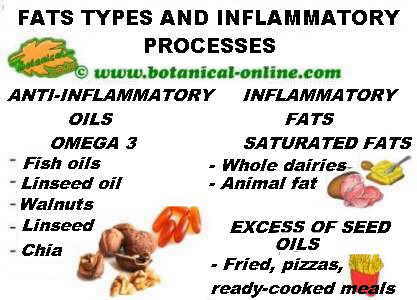Contents
Beneficial properties of omega 3 in arthritis
How does omega 3 work against rheumatoid arthritis?
It is possible that the reader has experienced some acute pain, which disappears after a few days without apparent cause.

Omega 3 supplements are given in pearls format, because they allow better preservation and dosage.
This effect occurs because the body is able to make its own anti-inflammatories, and makes them from the essential fatty acids (AGE).
The essential fatty acids are those known as omega 6 (linoleic acid), omega 3 (linolenic acid) and its derivatives EPA and DHA.
Essential fatty acids against inflammation
Essential fatty acids are a type of fat. They are called essential because they must be provided in the diet, since the organism can not manufacture them.
With these ingredients, the body is able to synthesize its own anti-inflammatories. That is, it transforms omega 3 and omega 6 into substances, the prostaglandins, which have anti-inflammatory, anti-thrombotic and vasodilatory properties. They deflate and favor circulation.
- This means that the type of fat that is ingested in the diet has effects on the mechanisms of inflammation of the organism.
Which foods contain a lot of omega 3?
The main foods rich in omega 3 are:
- Linseed oil pearls. The pearls allow better dosage and conservation of the oil.
- Blue fish (sardines, mackerel, salmon, tuna, …)
- Nuts (walnuts, almonds, …)
- Seeds (linseed and chia seeds)
- Quinoa
* More information: Anti-inflammatory diet
Omega 3 supplements for arthritis
In case of rheumatoid arthritis, food supplements of omega 3, EPA and DHA are very suitable. Studies show that, taken in a usual way, for a period of 6 months, the AGE relieves the pain symptoms and improves the flexibility of the joints.
It is necessary to comply with these guidelines for between 2 and 6 months to notice the effects on pain reduction.
- EPA / DHA supplements can be purchased at pharmacies. Generally these come from fish oils, such as cod liver oil.
- Food supplements rich in omega 3 are linseed oil (very rich in omega 3) and evening primrose oil. Generally 2 pearls of oil are taken 3-4 times a day, 6-8 daily.
Fats that cause inflammation
As explained, fats are precursors of substances, the prostaglandins, which have effects on blood circulation and the inflammatory response of tissues.

Summary on the types of fat and its effects on the body’s inflammatory processes
Along with the above guidelines, in an anti-inflammatory diet, saturated fats in the diet should be decreased. This is a very important point, since saturated fats are inflammatory. Saturated fatty acids are precursors of arachidonic acid, with which series 2, inflammatory and vasoconstrictive prostaglandins are generated.
To avoid inflammation you should take into account the following dietary advice:
- Enhance the consumption of fish
- Decrease the meat of the diet
- In case of taking dairy products, they should be semi or skimmed (or replaced by vegetable alternatives)
- Avoid excess omega 6, through seed oils of poor quality, because they produce inflammation: sunflower oil, pastries, fried foods, sausages, etc.
* Related information: Importance of balance between omega 3 and omega 6
![]() More information on omega 3.
More information on omega 3.








